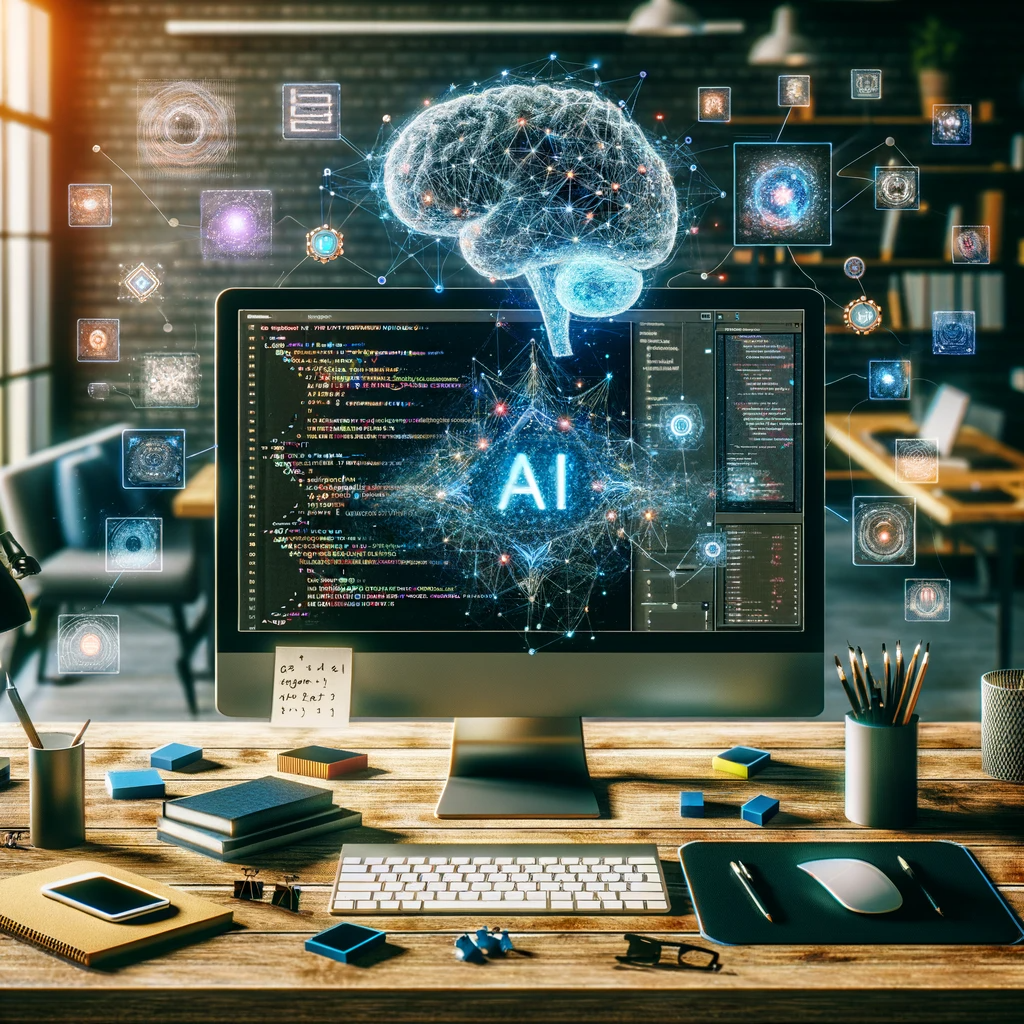
AI in .NET Core Web Development Part 2
Introduction
The integration of Artificial Intelligence (AI) tools within the .NET framework has significantly transformed the software development landscape. Historically, .NET developers relied heavily on manual coding practices, which, while effective, were often time-consuming and prone to human error. However, the advent of sophisticated generative and predictive AI code helpers, such as GitHub Copilot, has revolutionized this traditional approach. These tools not only enhance coding efficiency but also open up new possibilities for innovation in .NET development. Today, AI's role in .NET extends far beyond simple code generation, encompassing a wide array of applications designed to streamline development processes and improve end-user experiences.
Evolution of AI in .NET Development
The journey of AI tools in the .NET ecosystem has been one of gradual evolution and significant milestones. In the early days, AI's role was limited to basic functionalities like syntax checking and code suggestions based on predefined libraries. These features, though helpful, barely scratched the surface of what AI could potentially offer. The turning point came with the introduction of more advanced AI-powered tools, capable of understanding context, predicting developer intentions, and generating complex code snippets on the fly. GitHub Copilot, for example, became a game-changer by offering real-time coding assistance, leveraging the vast GitHub codebase for insights and suggestions. This shift not only made coding faster and more intuitive but also democratized access to high-quality code examples and best practices.
Beyond Code Generation: The Diverse Applications of AI
The application of AI in .NET development transcends code generation and prediction. A prime example is the integration of ready-made chatbots like Tidio, which offer out-of-the-box solutions for enhancing user engagement and providing automated customer support. These AI-powered chatbots can be seamlessly integrated into .NET applications, offering a sophisticated level of interaction without the need for extensive programming.
Open-source AI models such as CodeT5, PolyCoder, and the OpenAI Codex-ChatGPT present another frontier. These models enable developers to leverage AI for a variety of tasks, from understanding natural language queries and generating relevant code to optimizing existing code bases and even writing documentation. The open-source nature of these tools also encourages community collaboration, leading to continuous improvement and innovation.
Spotlight on Key AI Tools and Services
- GitHub Copilot: Developed by GitHub and powered by OpenAI's Codex, Copilot suggests code snippets and entire functions in real-time, directly within the IDE. This tool significantly accelerates the development process by reducing the time spent on boilerplate code and allowing developers to focus on more complex problems.
- Azure Cognitive Services & Microsoft Cognitive Toolkit (CNTK): Microsoft's suite of AI services and tools is designed to empower .NET developers with advanced AI capabilities, such as vision, speech, and language understanding. These tools are built to integrate seamlessly with .NET applications, enabling sophisticated AI features that can enhance user experiences and provide deep insights into data.
- Google Cloud Machine Learning Engine: This service allows .NET developers to build and deploy machine learning models that are scalable and integrated with Google's powerful cloud infrastructure. It's particularly useful for applications requiring complex data analysis and pattern recognition, offering a wide range of APIs that cater to various AI tasks.
The articles from Visual Studio Magazine and WASP-LANG.Dev offer practical insights into the implementation and benefits of these AI tools. They serve as valuable resources for developers looking to explore AI's potential within their .NET projects.
Pros of AI Integration in Business Workflows
Integrating AI into .NET development workflows brings a myriad of benefits, including increased productivity, improved code quality, and faster time-to-market for applications. AI tools automate repetitive tasks, offer intelligent suggestions to solve complex problems, and can even predict future development needs based on current trends. This not only streamlines the development process but also allows teams to allocate more time to innovation and strategic planning.
Conclusion
AI tools have become indispensable in the modern .NET development toolkit, offering a blend of efficiency, accuracy, and innovation previously unattainable. As these technologies continue to evolve, their integration into development workflows will become not just advantageous but essential. Developers and organizations are encouraged to explore the vast potential of AI in .NET development, leveraging these tools to not only enhance their productivity but also to create more sophisticated, user-centric applications. The future of .NET development is undeniably intertwined with AI, and embracing this technology is key to staying competitive in an ever-evolving digital landscape.
As the integration of AI within the .NET development framework becomes increasingly ingrained, developers and organizations face the challenge and opportunity to navigate a rapidly evolving landscape. This journey towards a more AI-centric development process is not without its hurdles, but the potential benefits far outweigh the initial complexities. To fully harness the power of AI in .NET development, a forward-looking approach coupled with a commitment to continuous learning and adaptation is essential.

Post Address
3213 Dalhart Dr, Fort Worth TX 76179
General
Phone: (800) 839-1129
Email: sales@AnterisIndustries.com
Operation Hours Central Standard Time
Mon-Sat: 09.00 to 05.00 (Sunday: Closed)


